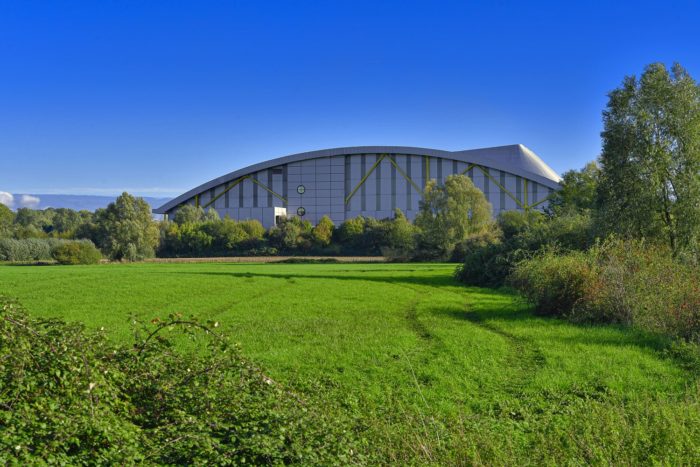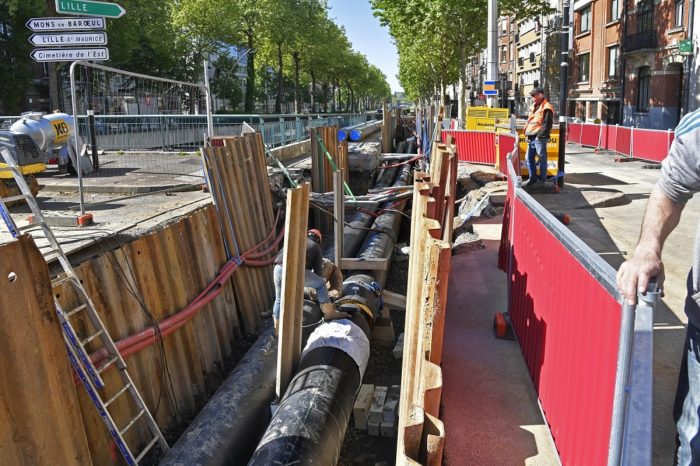An urban heating network puts Lille at the heart of the ecological and energy transition
Supplying the heating network with energy recovered from waste: a local, sustainable energy source
Since late 2020, the heating network of the European Metropolis of Lille (France) has been supplying domestic hot water and heat to public facilities such as town halls and swimming pools, as well as social housing. It is connected to the metropolitan Energy Recovery Centre, which produces electricity by burning household waste.
Supplying the heating network with energy recovered from waste: a local, sustainable energy source
Following changes in national legislation, responsibility for heating networks was transferred to the European Metropolis of Lille (MEL).
The permanent switch from coal to a local, sustainable energy source occurred when the metropolitan heat transmission network was created in late 2020, as part of the MEL’s Regional Climate, Air & Energy Plan (PCAET). The network connects the community Energy Recovery Centre with a number of networks in the metropolis, including Résonor, giving it broad coverage of the entire region.

From centralisation of heat production to the introduction of gas-fired cogeneration, the City of Lille is driving energy transformation in the region
Commissioned in 1974, the Lille heating network supplied domestic hot water and heat to the city’s neighbourhoods, initially using an oil-fired heating plant, and later the Mont-de-Terre coal-fired heating plant.
The coal-fired plant has since been shut down as part of a multi-stage project by the City of Lille to upgrade the facility. Until 2015, the city was responsible for energy. By supporting the creation of Résonor in 1985, the City of Lille boosted the region’s energy transformation. It drastically reduced the pollution previously emitted by around 150 small coal-fired heating systems by centralising production at a single site, at Mont-de-Terre, and by fitting systems with effective filtration. A joined-up heat transmission network made it possible to meet a signification proportion of local needs, from public and private buildings as well as social housing.

Fully aware of the health and wellbeing needs of the citizens of Lille, of the challenges of reducing greenhouse gases, and of energy costs and requirements in the region, the City of Lille has continued the ecological transition of the site. The first decade of the new millennium witnessed a new step in the modernisation of the company, which, alongside electricity production, supplemented its energy mix with a gas-fired cogeneration facility. This reduced the share of coal in the mix and provided residents with energy at a highly competitive price with long-term stability, which is particularly important to low-income households.
It’s a major step forward in the energy transition: switching from coal, a fossil fuel, to a more virtuous energy source
Audrey LINKENHELD, First Deputy Mayor of Lille responsible for the Ecological Transition and Sustainable Development, and Vice President of the European Metropolis of Lille responsible for the Climate and the Ecological and Energy Transition.
This “highway of heat”, consisting of 20 kilometres of pipes, has enabled Lille to achieve 60% renewable energy and recovery and supply the equivalent of nearly 25,900 homes, a number which is steadily increasing.
A proactive policy that aims to reduce atmospheric pollution by significantly reducing emissions of CO2 and atmospheric pollutants, to address health challenges and to improve residents’ quality of life.
Article submitted by Lille Métropole, a member of our network.


